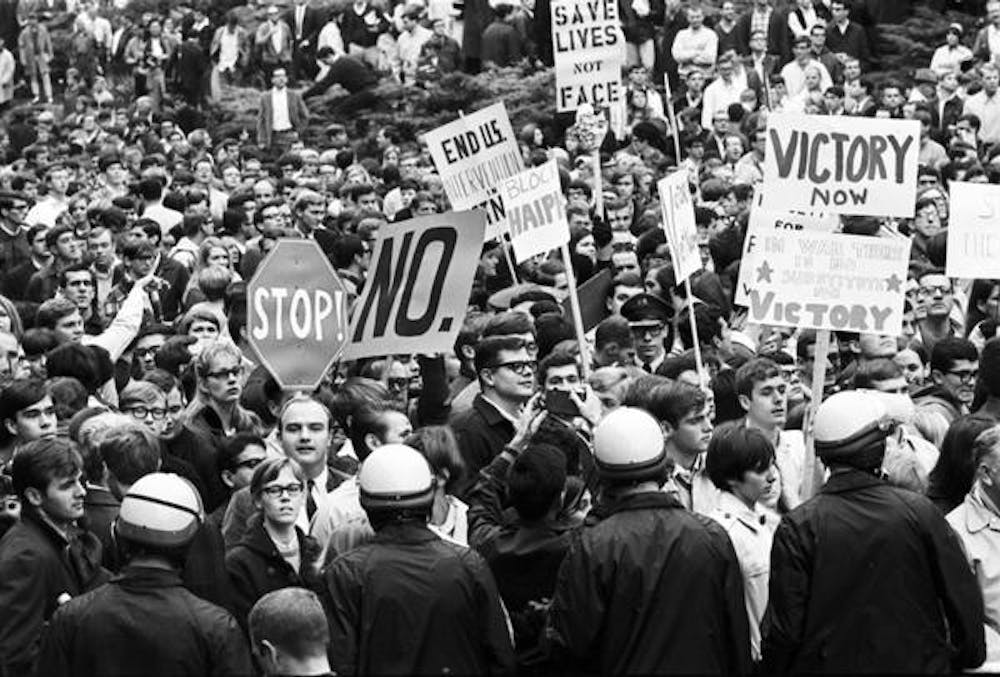The campus-wide riots following the firing of former IU men’s basketball coach Bob Knight in 2000 are the most infamous protests to take place at IU-Bloomington. However, these protests were not a result of political turmoil.
Knight was fired after freshman Kent Harvey alleged the coach grabbed him by the arm and lectured him after Harvey tried to catch Knight’s attention.
After Knight gained a reputation for throwing chairs and intimidating fellow IU employees, students removed bronze statues of fish from Showalter Fountain and even burned effigies of former President Myles Brand and Harvey in response to Knight’s firing.
The last time IU’s Bloomington campus had seen such unadulterated public outcry was probably in the 1960s and ‘70s at the height of the Vietnam War and the Civil Rights Movement.
IU students have protested former President Richard Nixon announcing U.S. involvement in Cambodia, the Dow Chemical Company recruiting on campus and the university increasing tuition. There was even a sit-in the day before Little 500 in 1968 over racial inequality on campus.
These protests brought out hordes of students and influenced change at IU in lasting ways that today’s generation might take for granted.
In the past 50 years, it’s undeniable that our campus has changed for the better thanks to students who have stood up and spoke out. But we still have a long way to go.
The university continually fails to properly address dangerous situations on campus-owned property, whether it be a mold outbreak or a shooting.
Victims of sexual assault on campus still seek justice from systems put in place by the university that is supposed to protect them but further traumatizes them instead.
And despite the efforts of IU students more than 50 years ago to make IU a more racially equal and diverse campus, the total student body remains about 65% white, a large portion considering IU’s Bicentennial Priorities of representing minorities and furthering global outreach.
There is a litany of issues that endanger students pursuing a higher education, particularly minorities, yet no one is destroying Showalter Fountain or burning effigies outside the president’s house. Has IU lost its once-rich spirit of dissent and in exchange gained a quiet acceptance of the issues that plague us?
The spirit of protest lives on among IU student groups such as Shatter the Silence, which demanded action on sexual violence at a rally in 2018, and the activist organizations that organized climate strikes last year. More needs to be done.
Knight remained fired despite those infamous riots in the fall of 2000. But maybe IU can channel that same energy, 20 years later, for a cause that really matters.
Abby Malala (she/her or they/them) is a senior studying cinema studies. She wants to be a writer (and get paid for it) in the future.






